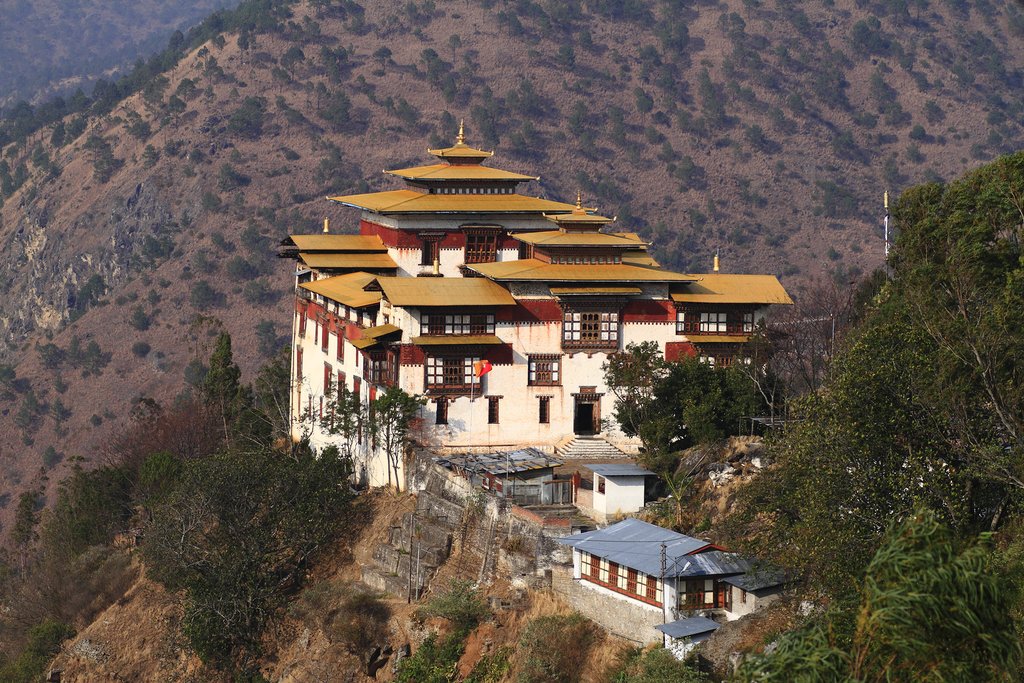Weather
January is mid-winter in Bhutan, meaning temperatures range from cool to very cold. The altitude plays a huge part in just how cold a place gets in winter. Bhutan is mostly quite high altitude, but not exclusively. Southern parts of the country border India, so the climate around the Royal Manas National Park, for example, is much more like a North Indian climate.
The town of Gelephu ranges from 50 to 73° F (10 to 23° C) on average in January. On the other hand, most points of interest to travelers are at a higher altitude. Punakha is at around 5000 feet (1500 meters) and experiences January temperatures between 41 and 63° F (5 and 17° C). The capital Thimphu is even higher, at around 6500 feet (2000 meters), and sees temperatures between 27 and 54° F (-3 and 12° C).
The upside to weather in January is that skies are normally clear, allowing good mountain views.
Crowds & Costs
The winter months are low season in Bhutan, and not many travelers visit in January. You'll pay low-season prices for tours and lodging, and may even be able to find a great deal on some of Bhutan's beautiful boutique and luxury accommodation.
Where to Go
If you're interested in jungle national parks and wildlife tours, winter is ideal, as this is a perfect time to visit the low-altitude Royal Manas National Park. It's just 200 to 360 feet above sea level, so much lower than most places of interest to visitors in Bhutan. You can see tigers, rhinos, elephants, and leopards.
Chat with a local specialist who can help organize your trip.
What to Do
Trekking at higher altitudes is not usually possible in mid-winter, but some shorter hikes and walks are still possible. With clear skies and mountain views, winter is a good time to get out into nature, as long as you avoid very high-altitude routes or camping. The Punakha Winter Trek, for example, passes through villages, forest, and farmland, and doesn't go too high in altitude.
General touring is also a good idea in January. You'll go out in the daytime to see Bhutan's famous temples, palaces, and monasteries—like the Tiger's Nest Monastery and Punakha Dzong—and return to warm and cozy accommodation in the evening.
Whatever kind of accommodation you're staying at, don't pass up the opportunity to try a traditional hot stone bath. These are usually available for a small fee.
Events in January
Sarpang Tsechu, Gelephu, late January. This masked dance festival is held in the courtyard of the Tali Dratshang Monastery in the southern town of Gelephu in late January.
Traveling to Bhutan in January? Check out these great itineraries
Bhutan Highlights: Thimphu, Punakha, and Paro - 6 Days. This itinerary lets you see the highlights without venturing into the colder higher altitudes.
Bhutan Highlights - 7 Days. Visit the iconic Tiger's Nest Monastery, admire the beauty of the Paro Valley, and learn about Bhutanese culture on a week-long trip.
More Helpful Information
Bhutan in December
Bhutan in February
Best Time to Visit Bhutan
More Bhutan Tours & Itineraries
